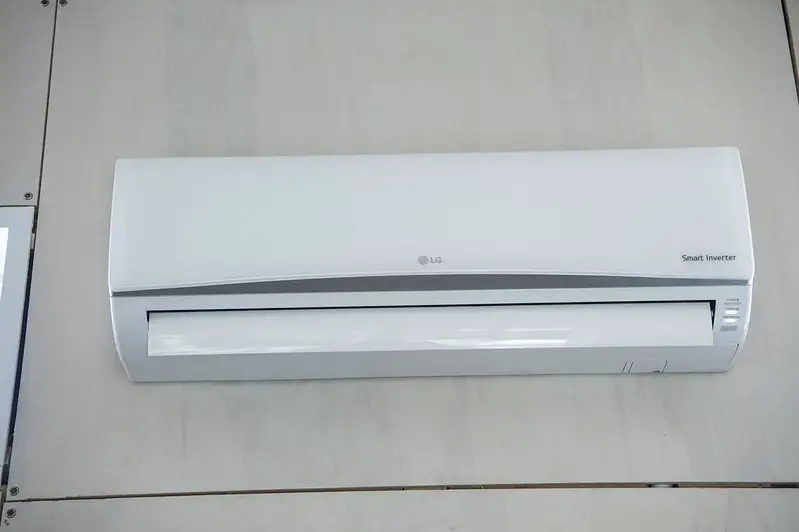How inverter AC works might sound like a complicated topic, but as a homeowner, it’s essential to understand the benefits of this fantastic technology. In this article, we’ll delve into the nitty-gritty of inverter air conditioners and how they differ from traditional AC systems. We’ll also explore the components, working principles, and advantages of inverter ACs.

Table of Contents
Basics of Inverter AC
Before we dive into how inverter AC works, let’s take a moment to understand inverter technology and the main components of an inverter AC. This foundation will help us better appreciate the benefits and workings of inverter air conditioners.
Understanding Inverter Technology
In simple terms, an inverter is a device that converts direct current (DC) to alternating current (AC). But what does this have to do with air conditioning? Well, inverter technology allows the AC system to regulate its cooling and heating capacity by adjusting the compressor’s speed. In contrast, traditional AC systems simply turn the compressor on and off. This key difference leads to numerous advantages, as we’ll see later in this article.
Components of an Inverter AC
Now, let’s break down the main components of an inverter AC:
Compressor: This vital part compresses the refrigerant, allowing it to circulate through the system.
Inverter: As mentioned earlier, the inverter converts DC to AC and regulates the compressor’s speed.
Control board: This electronic component manages the entire system’s operation.
Indoor and outdoor units: The indoor unit blows cool air into the room, while the outdoor unit dissipates heat.
Check out these other related articles…
Inverter AC Power Consumption: Save Energy and Money
Does Inverter AC Need Stabilizer? Unraveling the Truth
Inverter Technology in AC: A Homeowner’s Guide to Comfort
Inverter AC vs Split AC: The Ultimate Guide for Homeowners
Inverter AC Compressor: Unlocking the Key to Home Comfort
How Inverter AC Works
Now that we’ve covered the basics, let’s dive into the heart of the matter: how inverter AC works. We’ll explore the variable-speed compressor, the DC inverter, and the temperature control and regulation mechanisms that set inverter air conditioners apart from their non-inverter counterparts.
Variable-speed Compressor
The compressor plays a crucial role in the air conditioning process, as it compresses the refrigerant and enables it to circulate within the system. In an inverter AC, the compressor operates at variable speeds, adjusting its output based on the cooling or heating demand. This smart technology leads to a more efficient and comfortable indoor environment.
DC Inverter
A core component of the inverter AC is the DC inverter, which converts the AC power supply into DC. This conversion allows the inverter to use pulse-width modulation (PWM) to control the compressor’s motor speed, resulting in precise temperature regulation and energy savings.
Temperature Control and Regulation
Inverter ACs are known for their exceptional temperature control and regulation. Thanks to the thermostat settings and a sophisticated feedback mechanism, inverter air conditioners can continuously adjust their performance for optimal comfort and energy efficiency. Let’s explore this further.
Advantages of Inverter AC
Now that we’ve discussed how inverter AC works, let’s take a closer look at the advantages it offers over traditional AC systems. We’ll focus on three main benefits: energy efficiency, quieter operation, and faster cooling and heating.
Energy Efficiency
One of the most significant advantages of inverter ACs is their energy efficiency. Due to the variable-speed compressor and precise temperature control, these systems consume less power than non-inverter ACs. In fact, inverter air conditioners can save up to 30-50% on energy bills, making them a worthwhile investment for homeowners who prioritize energy savings and environmental sustainability.
Quieter Operation
No one likes a noisy air conditioner, right? Inverter ACs offer a much quieter operation than traditional ACs. The variable-speed compressor generates less noise than an on/off compressor, resulting in a more peaceful and comfortable indoor environment. Additionally, some inverter AC models come with advanced soundproofing features, further reducing noise levels.
Faster Cooling and Heating
Another advantage of inverter ACs is their ability to cool and heat rooms more quickly. Thanks to the variable-speed compressor, these systems can rapidly adjust their output to achieve the desired temperature. Once the set temperature is reached, inverter ACs maintain it with minimal fluctuations, providing consistent comfort while consuming less energy.
Inverter AC Maintenance
Like any other appliance, inverter ACs require regular maintenance to ensure optimal performance and longevity. In this section, we’ll discuss the importance of cleaning and servicing, as well as monitoring system performance to prevent potential issues.
Regular Cleaning and Servicing
Regular maintenance is crucial for any air conditioning system, and inverter ACs are no exception. Cleaning filters and coils, checking for refrigerant leaks, and ensuring proper airflow are essential steps to keep your inverter AC running efficiently. It’s a good idea to consult your AC’s user manual for specific maintenance guidelines and schedule professional servicing as recommended.
Monitoring System Performance
Keep an eye on your inverter AC’s performance to detect potential issues early on. Indicators such as unusual noises, reduced cooling or heating capacity, and increased energy consumption may signal a problem. In such cases, use diagnostic tools and techniques or consult a professional technician for servicing recommendations. Regular monitoring and timely intervention can help prevent costly repairs and prolong your inverter AC’s lifespan.
We recommend you read this article: Mastering Efficient AC Unit Maintenance to learn how to maintain your AC unit.